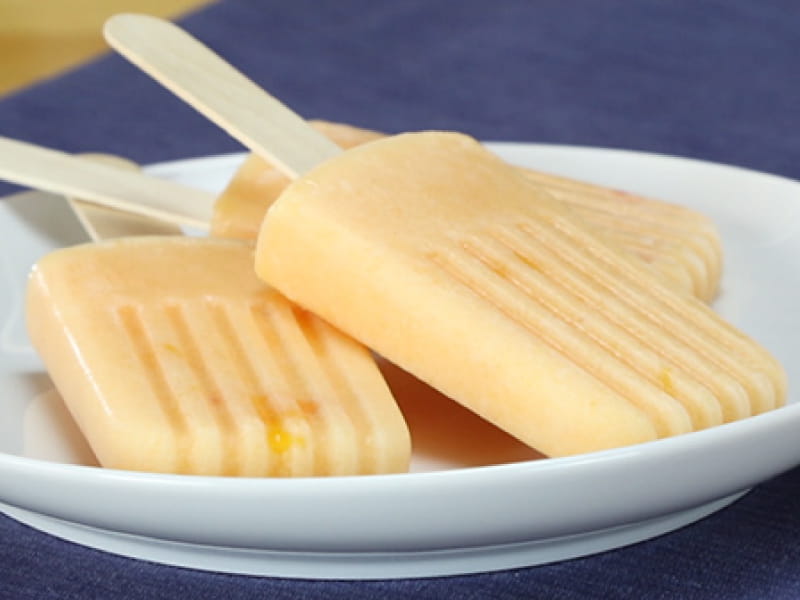A healthier frozen treat for hot summer days
By American Heart Association News

Want to beat the heat with a cold treat this summer? Consider a healthy frozen yogurt pop with peaches.
"It's a tasty low-calorie recipe that provides protein, potassium and calcium that is also kid-friendly and easy to prepare," said Linda Van Horn, a registered dietitian and chief of the nutrition division at Northwestern University's Feinberg School of Medicine in Chicago.
These homemade pops contain just three ingredients: A smidgen of honey, a 16-ounce package of frozen peaches, and one cup of plain, fat-free yogurt. "Many other yogurts on the market can contribute double the calories, fat and sugar," Van Horn said.
Peaches – the main ingredient – have potassium and vitamin A, as well as fiber. "Frozen unsweetened peaches are especially useful, but fresh or unsweetened canned peaches or any other fruit could also be used," she said. "Fruits that are especially tasty in a frozen dessert are strawberries, blueberries and raspberries, or tropical fruits such as mango, pineapple, guava or papaya."
At a time when many people are carefully watching their budget – and maybe their waistline – these homemade pops give you more bang for the buck.
"At 66 cents per serving, they are less than half the cost of commercial options," Van Horn said. "At the same time, they're a sweet, refreshing treat that is nutritious and very low in sugar compared to popular sugar-sweetened popsicles and commercial frozen yogurt bars."
If you have questions or comments about this story, please email [email protected].





